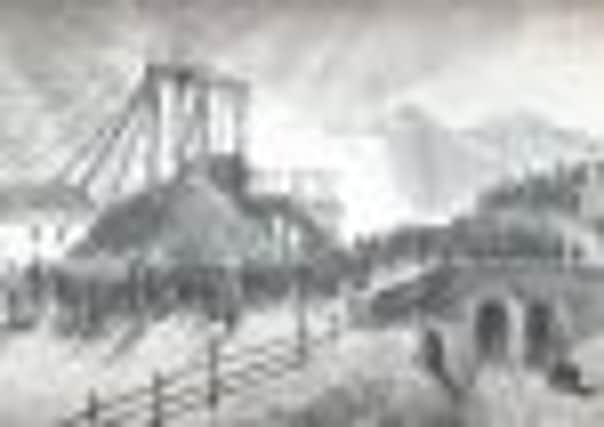Call for housing to honour victims of mining disaster


Housebuilder Taylor Wimpey has made a bid to Midlothian Council to build 438 houses and 81 flats at Greenlaw Mains, near Mauricewood Road, Penicuik.
While the development is being largely supported, community leaders want the history of Mauricewood Pit – where a devastating fire broke out in 1889 – to be recognised.
Advertisement
Hide AdAdvertisement
Hide AdIt has even been suggested that street names should be chosen in recognition of the 63 men and boys who lost their lives when they were trapped underground.
Midlothian Provost Adam Montgomery said: “I think it would be a good idea to have the Mauricewood Disaster in mind when naming the streets, there are bound to be people who carried out heroic deeds whose name they could use.
“The [current] memorial is a landmark in the town and thousands of people see it from the roadside as they go past.”
Mr Montgomery, who will step down as Provost after the election but will again run as councillor, said: “Mauricewood was a mine which you walked in to, not one that you went down in a shaft, and the tragedy actually led to a change in the legislation.
Advertisement
Hide AdAdvertisement
Hide Ad“Afterwards, the mines had to have both an entrance and an exit for safety reasons.”
Derek Cosens, chairman of Penicuik and District Community Council, said the development was being welcomed, particularly in the light of falling school rolls.
He said: “One of the residents drew attention to the mining disaster and suggested the streets might actually be named after the names and places associated with it.
“It was such a tragedy because whole families were wiped out, from young boys to grandfathers.”
Advertisement
Hide AdAdvertisement
Hide AdThe naming of street names is the remit of a Midlothian Council official who consults with the Provost.
A spokesman for Taylor Wimpey said: “We have and will continue to positively engage with the community and Midlothian Council on the proposals at Greenlaw Mill.
“We would hope that recognition of the area’s mining heritage, and indeed the Mauricewood Disaster, could be considered as part of the ‘Percent for Art’ scheme that allows developers and the local authority to sympathetically recognise the wishes of the community.”
HORROR UNDERGROUND
THE tragedy at the Mauricewood Pit began when sections of the wood lining of the colliery ignited and flames spread to a coal seam. It took four days to put out the fire.
Advertisement
Hide AdAdvertisement
Hide AdMore than 100 people, some as young as 12, were at work in the pit, around 70 of them underground.
The miners working in the lower level were unable to escape and the only way to extinguish the fire was to seal off the area. The final bodies were not brought out of the pit until the following year.
The cause was never determined, although it led to the pit being closed.
The original memorial was installed in 1989 at the instigation of councillor Adam Montgomery and the Shottstown Miners Welfare Club.